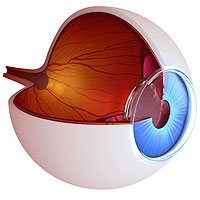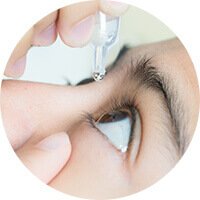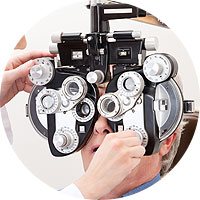Being diagnosed with a cataract does not necessarily mean you need cataract surgery right away. Cataracts develop slowly, often over a period of years, with symptoms developing slowly too.
When the cataract is still small, you may not have many noticeable symptoms or any at all. This is why some people with early-stage cataracts are not even aware they have one.
Cataract surgery is typically recommended when the removal of a cataract would significantly improve your quality of life. Cataract surgery can restore your vision and even allow you to experience greater visual freedom, depending on which replacement lens you choose.
Keep reading to learn six signs that it may be time for cataract surgery!
1. Your Vision Is Blurry All the Time
Cataracts are a clouding of the natural lens of your eye. Your lens plays a vital role in your vision by helping to focus light onto the retina.
A cataract blocks light from traveling through the lens to reach the retina. Instead, it scatters light as it enters the eye.
The scattered light causes numerous symptoms that worsen over time as the clouded area grows. When a cataract first begins to affect your vision, an updated prescription is often enough to correct your vision so that you can continue to see clearly.
However, this is only a temporary fix. As the cataract develops, more frequent prescription changes are needed, and eventually glasses or contacts are no longer enough to make up for the effect of the cataract.
If your vision is blurry after a prescription change with or without glasses, it may be time to consider cataract surgery.
2. You’re No Longer Able to Do the Things You Love
Take a moment to think about some of your favorite activities. Now, ask yourself if it’s gotten harder to enjoy them in the time since your cataracts began developing.

It may have even become impossible to take part in some of your favorite activities, whether watching a movie or playing a round of golf. You may not realize how much your vision affects your life until it becomes impaired.
You deserve clear vision and the ability to not just participate in daily tasks that you have to do but the ones that bring you joy too. Cataract surgery can make your days happier by allowing you to enjoy your favorite activities to the fullest again.
3. Poor Vision Makes You Feel Isolated in Social Situations
According to the American Academy of Ophthalmology, over twenty-four million Americans have cataracts. Still, having one yourself can feel incredibly isolating.
When your vision is blurry, cloudy, or foggy, as is often the case with cataracts, you can have trouble recognizing faces. This can lead many cataract patients to no longer feel like themselves during social situations or even avoid them completely.
Moments with loved ones are precious. Don’t let a cataract steal your ability to enjoy them.
After cataract surgery, you’ll be able to look forward to social situations again.
4. You’ve Been Injuring Yourself Due to Impaired Vision
Cuts, falls, and other types of injuries are an inevitable part of life. When you have a cataract, though, you may find this happening more and more often.
When you can’t see objects clearly, such as when preparing food in the kitchen, it can be easy to misjudge the distance of objects and accidentally hurt yourself. Cataracts also affect your depth perception, making you more prone to trips and falls, such as when going up or down the stairs.
Impaired peripheral vision also means you’re more likely to bump into objects. Cataract surgery is not just beneficial for your eyes and vision.
It can be a good decision for your entire overall well-being.
5. You Feel Unsafe When You Leave the House
A common complaint from those with advanced cataracts is that they feel like they have lost their independence. This is because a cataract can make you feel unsafe whenever you leave your house and enter the wider, often blurry world on your own.
This is especially true when it comes to going out at night. Cataracts can make you sensitive to light and cause harsh glare and halos around light sources.
As a result, driving at night can become quite challenging and even dangerous. So, many patients choose to have someone else drive them around, sacrificing their independence, or simply stay home.
6. Colors Have Lost Their Vibrancy
When you have a cataract, it can seem as if you are stuck viewing everything through a yellow or brown-tinted film. Colors look faded or dulled.
You may also have trouble telling the difference between certain hues. Many patients are amazed at the difference before and after cataract surgery as it pertains to their color vision.
You may have unknowingly grown accustomed to seeing a lackluster version of the world, but cataract surgery can bring vibrancy back into your life.
If any of these points apply to you, it’s time to consider cataract surgery. Schedule your cataract surgery consultation at Eye Care Specialists in Wilkes-Barre, PA, today!

















